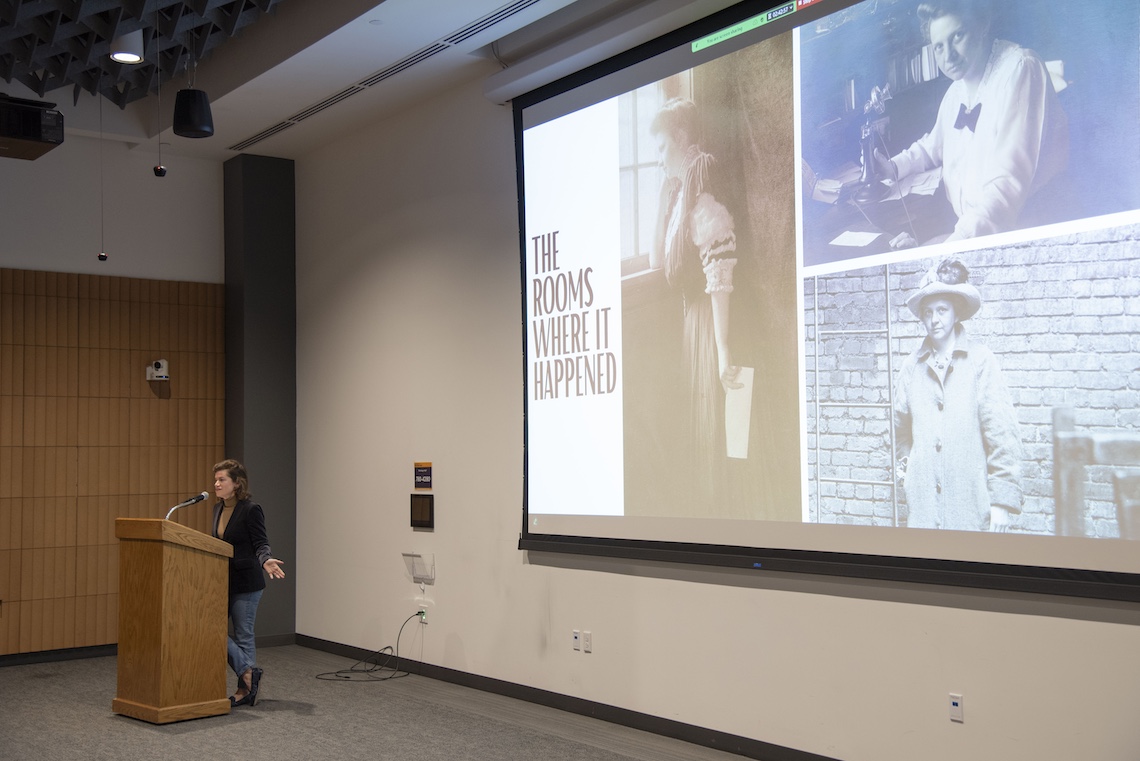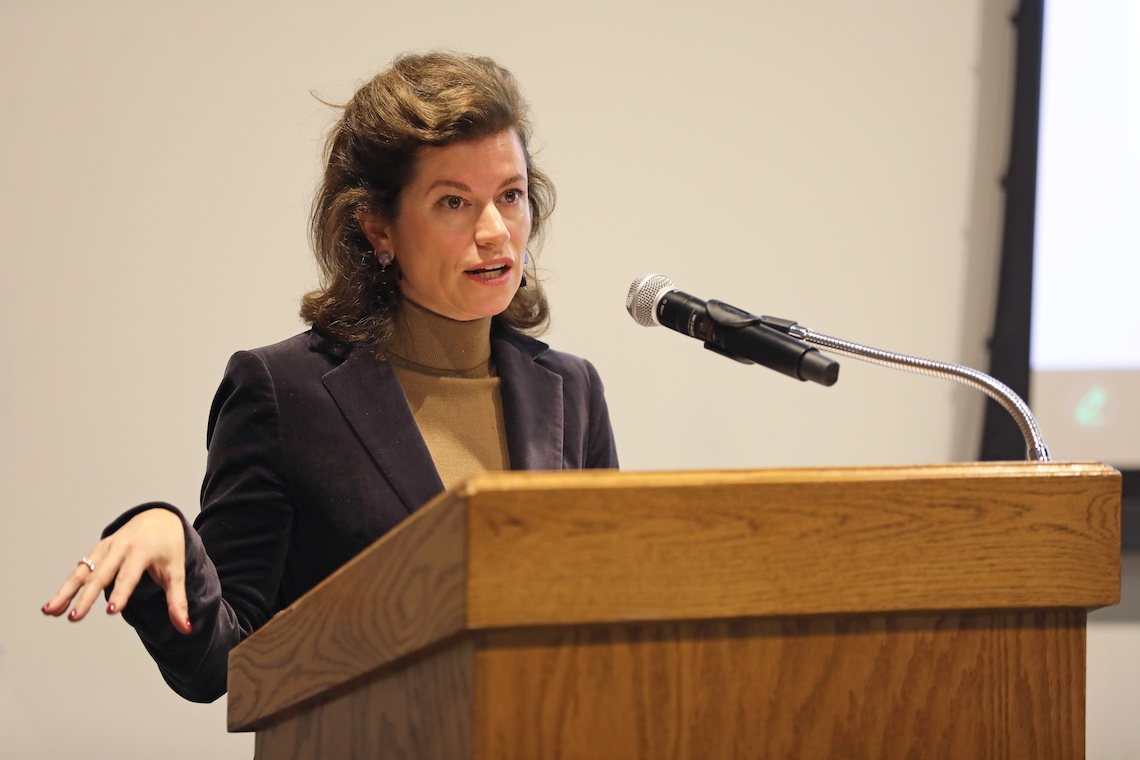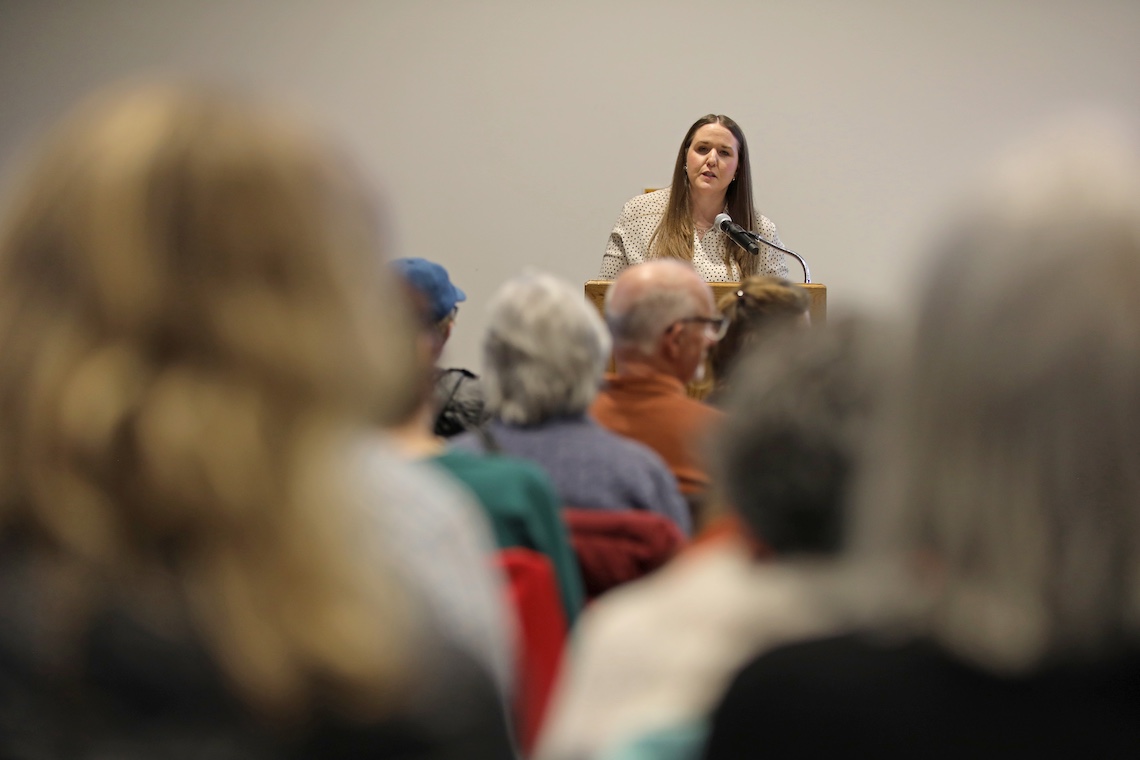
In the current climate of economic uncertainty, a standing-room crowd gathered at the University of Southern Maine to learn about the architect of America’s social safety net.
Frances Perkins was the focus of the lecture titled “The Only Woman in the Room.” Presented by the Women and Gender Studies Program, it took place on March 6 at the McGoldrick Center in Portland. The featured speaker was Giovanna Gray Lockhart, executive director of the Frances Perkins Center.
“Women generally aren’t represented in the history books in quite the same way (as men), especially those that were behind the scenes, and Perkins very much was behind the scenes,” Lockhart said. “We need to tell her story because, otherwise, she will get written out of history.”
Perkins was the first woman to serve in a presidential Cabinet. Franklin Roosevelt chose her to be his Secretary of Labor. Her tenure (1933-1945) remains the longest that anyone has held the position.
The challenges facing Perkins were huge. She entered office during the Great Depression and dedicated herself to easing the suffering of working-class Americans. She spearheaded the successful push to restrict child labor, standardize the 40-hour workweek, set a minimum wage, and create the Social Security program.
Such a revolutionary agenda would have been difficult to enact under any circumstances. Perkins also had to overcome gender stereotypes. She learned to be strategic in dealing with men who weren’t used to women in power, carefully choosing when to speak up to avoid being seen as either mousy or shrewish. Results mattered more to her than credit.

Perkins’ strategy worked so well that her name remains unknown to many people who enjoy the fruits of her efforts. Camille Alipalo, a junior Leadership and Organizational Studies major, went to the lecture to fill that gap in her grade school education. The welcome she received from other guests melted away any hesitation she felt.
“It got me even more excited because I didn’t really know what to expect,” Alipalo said. “And now, with the room getting more and more crowded, it feels really great to be here.”
Alipalo is a student representative on the University of Maine System Board of Trustees. She attended the lecture with USM Student Senate Chair Mia Noon. If they hadn’t arrived early, they might not have been able to sit next to each other. Organizers were surprised by how quickly the room filled up and rushed to put out extra seats to meet the demand.
Interest in Perkins has surged since her family homestead in Newcastle, Maine, became a national monument. President Joe Biden signed a proclamation last December to make the designation official. That moment resulted from years of hard work.
Lockhart led the campaign to gain monument status. The Frances Perkins Center already operated out of the homestead. By raising its profile, Lockhart hoped to do the same for Perkins. Lockhart found an ally in Dr. Ashley Towle, an assistant professor of History and director of the Women and Gender Studies program at USM.

Towle co-authored a letter in which she urged Biden to sign off on the monument. She didn’t know much about Perkins before committing herself to intensive history research in college. She sees the monument as an educational gateway for younger students who will shape the future.
“There are a lot of lessons that we can learn from Frances Perkins as far as how she really managed to be both an idealist and a pragmatist at the same time in order to accomplish what she thought was most important for the American people,” Towle said. “I think that’s something that we can all learn from today still.”
Towle warmed up the audience for Lockhart with a few opening remarks. The lecture was more than a victory lap for their work on the monument campaign. It was also a call to action. The monument needs support to flourish, and so does Perkins’ legacy.
“She laid the groundwork and the framework,” Lockhart said. “Now, it’s up to us to figure out what comes next.”

